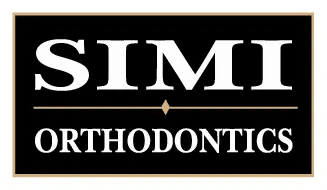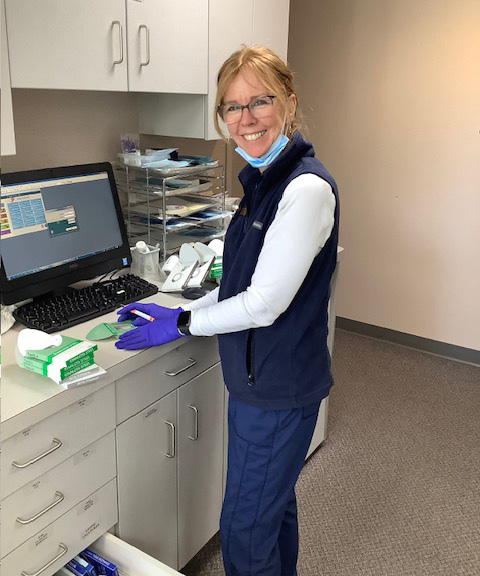1. Why should I choose an orthodontic specialist?
Orthodontic treatment can have a significant impact on your teeth and facial structure. The treatment must be appropriate and expertly completed. Orthodontic specialists undergo extensive training, which enables them to deliver professional, personalized treatments tailored to each patient.
2. Do I need a referral from my family dentist to schedule an appointment with the orthodontist?
No referral is necessary to schedule an appointment with us. While many patients are referred by their family dentist, others schedule their examinations independently.
3. At what age should I schedule an appointment for an orthodontic screening for my child?
The American Association of Orthodontists recommends scheduling an orthodontic screening at age 7. By this age, several permanent teeth have typically erupted, allowing for an effective evaluation of your child’s orthodontic needs.
4. How do I schedule an appointment for an initial exam?
If you or your child may benefit from orthodontic treatment, please contact our office by phone, email, or through our online appointment request form. Our friendly front office staff will help you schedule a convenient appointment.
During this first visit, Dr. Simi will review the patient’s medical history, examine their teeth, discuss potential treatment needs and timing, and provide an estimate of costs. For more detailed information, please visit our “First Visit” page.
5. How long will it take to complete treatment?
The duration of orthodontic treatment varies depending on each patient’s specific orthodontic issues and their cooperation in following treatment objectives. Typically, full orthodontic treatment ranges from 24 to 36 months.
6. How much will braces cost? Are financing options available? How does my insurance work?
Dr. Simi will need to conduct an examination first to provide an accurate cost estimate. We offer a range of financing options tailored to fit your budget, which we will review with you. Additionally, we will assist in determining your orthodontic insurance benefits and file claims on your behalf. More detailed information can be found on our finance page.
7. How often will I have orthodontic appointments?
Appointments are scheduled based on each patient’s individual treatment needs. For most patients in braces, appointments are typically scheduled every 5-6 weeks. If additional monitoring is required for specific situations, appointments will be scheduled accordingly.
8. Can I schedule all of my appointments after school?
Appointments to place or remove braces and appliances are scheduled during school hours. Subsequent appointments can usually be scheduled after school, minimizing the impact on your child’s education.
9. Do braces hurt?
While braces usually do not cause pain, some patients may feel sore for a few days after certain adjustments. Over-the-counter pain relievers like Advil or Tylenol can help reduce any discomfort. Overall, most patients find that braces are comfortable and effective with minimal discomfort.
10. Can I return to school the day I receive my braces?
Yes, the discomfort from braces adjustments is typically manageable and should not prevent you from returning to school on the same day.
11. Do you use recycled braces?
Absolutely not. Each patient receives their own set of braces to ensure the best orthodontic results possible.
12. Can I play sports while undergoing orthodontic treatment?
Yes, we recommend using an orthodontic mouth guard for all sports activities to protect your teeth and braces.
13. Do I need to see my family dentist while in braces?
Yes, regular dental check-ups with your family dentist are essential during orthodontic treatment. Your dentist will determine the appropriate intervals between cleaning appointments while you are wearing braces.
14. Are there foods I cannot eat while I have braces?
Once treatment begins, we will provide you with complete instructions and a comprehensive list of foods to avoid. Some of these foods include ice, hard candy, raw vegetables, and all sticky foods (such as caramel and taffy). By carefully following our instructions, you can avoid most emergency appointments to repair broken or damaged braces.
15. How often should I brush my teeth while in braces?
Patients should remember to brush their teeth at least three times a day: after each meal and any sugary snacks. We will demonstrate to each patient how to properly brush and floss their teeth with braces and provide special tools to assist them. If necessary, we will also recommend a special fluoride treatment.
16. What is an emergency appointment? How are those handled?
If your braces are causing extreme pain or if something breaks, you should call our office. In most cases, we can address these issues over the telephone. If you require an emergency appointment, we will set aside time for you.
17. Can orthodontic correction occur while a child has baby teeth?
Yes, some orthodontic problems are significant enough to require early intervention. However, if a patient is not yet ready for treatment, we will monitor the patient’s growth and development until the time is right for treatment to begin.
18. What is Phase One or “Early Treatment?”
If required, the initial phase of treatment typically begins when children are 7-10 years old and lasts for about 12 months. The main goal of this phase is to address any significant issues and prevent them from worsening.
19. Will my child need full braces if they have undergone Phase One treatment?
It is best to assume that your child will need full braces even after Phase One treatment.
20. What is the purpose of a Palate Expander?
A palate expander is a device used to create extra space in a child’s mouth by gradually widening the upper jaw. Although it may sound intimidating, it is actually quite simple to both administer and endure.
This is due to the fact that the upper jaw develops as two separate halves that do not fully fuse together until after puberty. Before this occurs, the two bones can be gently separated and stabilized over a period of several months.
21. Is it too late to have braces as an adult?
A surprising number of our patients are adults. In fact, 25% of all orthodontic patients are adults. Health, happiness, and self-esteem are crucial to adults. No patient is “too old” to wear braces!
22. Can I wear braces even though I have crowns and missing teeth?
Yes, a tooth with a crown will move just like a tooth with a simple filling. Orthodontic treatment can help align remaining teeth when some are missing.

